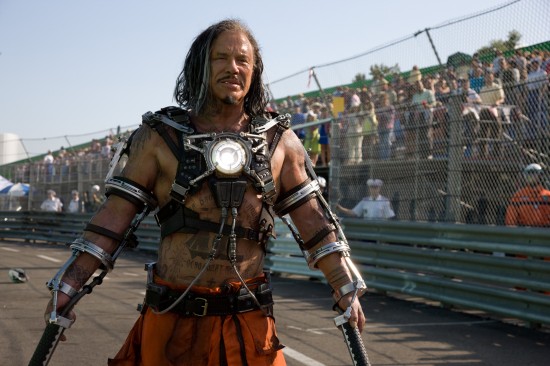Interview: Iron Man 2 Screenwriter Justin Theroux
A couple weeks back I got the opportunity to chat with Justin Theroux, the actor-turned-director-turned-screenwriter. He wrote the screenplay for Tropic Thunder, and penned Iron Man 2, which is the main topic of discussion. Read the full interview below.
Q: Okay, so we should start at the beginning.
Justin Theroux: Alright.
Q: How do you get involved with this project. I mean, you were on Tropic Thunder with Robert [Downey Jr] and then all of a sudden...
Justin Theroux: Tropic Thunder, the obvious connection was Robert. We had a great time doing that movie. And he was like you got to meet Kevin Feige, and Jon [Favreau], and those guys. And so I went in and I met with them. And it was super-organic. And it wasn't clearly well orchestrated. It was just kind of like I met. I explained what I loved about the first movie. Ideas of where it could possibly go into. The themes that I thought were interesting. And we really sort of jived on a lot of things, so. We just started from there. And it moved. I got asked to do it. I met with Jon obviously, and we talked, and...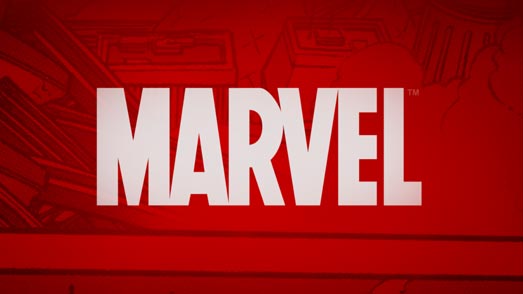
Q: I've always been interested in the Marvel process of how it works. Does it start with you pitching a story?
Justin Theroux: I don't know. I mean I don't know about how their other movies worked. The way this worked was they're very involved in process. In a great way because they know their brand better than anybody. Kevin Feige is, dare I say a genius, when it comes to creating these movies because he's a huge fan himself of these movies. It's very organic. You begin at the beginning. You just start with nothing. And you also know of me, Jon, Kevin, and Robert. Each person unpacked their trunk of things that they liked and would like to see. And this particular movie was given a gift in that the sequels were oftentimes hard because you don't know the origin story to point to. You have to create a villain, you know. Some kind of event has to happen. But we were given the gift of someone at the end of the movie saying, "I am Ironman" and a bunch of reporters hearing it, and therefore the world hearing it.
That's a great point of departure and a great jumping off point for any sequel. We knew we that was our sort of probably our biggest card in our hand, so we just sort of went from there. And we were pitching out ideas and then simultaneously sort of opened up the library and started looking at all the villains, and who would be great bad guys. And who would, now that this technology is in the world, who might want it or who thinks they own it. All those things, all those themes. It was a very sort of incremental process at first. And then once we sort of locked in on all the characters we wanted, all the characters we had and the themes we wanted to attack, then it sort of took off, and then quickly we were shooting.
Q: You talked about the bad guys, and in Iron Man 2... it's not the obvious choices...
Justin Theroux: It's not, yes. Well, again, I. It would be very hard for me to go back and thread exactly what got us to Whiplash but I mean he was probably one of five guys on the board that we really liked. And we knew we wanted to do a sort of a father storyline. So I went back in and sort of looked at– I sort of read backwards into the history of Howard Stark, and Anton Vanko, and Ivan Vanko. We sort of started grafting some of those things together and came up with what we thought were solid ideas, and then which villain obviously best facilitates that. Whiplash was the guy that sort of rose to the top. That sort of vague shadow version of Tony Stark-lite. Whereas Tony Stark was a brilliant guy who made billions, all the rest of them went to MIT, the finest schools, blah, blah, blah. What if there's a brilliant guy who just got nothing but the end of a whipping stick. So, here's a guy who's brilliant who has just been completely nurtured in the opposite direction who is probably as smart as Tony Stark but didn't have the resources of Tony Stark. And so what does he create? Because he can't create the whole suit of armor, so he creates just something sort of slightly bar baring, which is these whips. And just comes in and just starts tearing the movie up. And also he has a proper vendetta against Tony because he sort of sees him as the reason for his father's death and demise.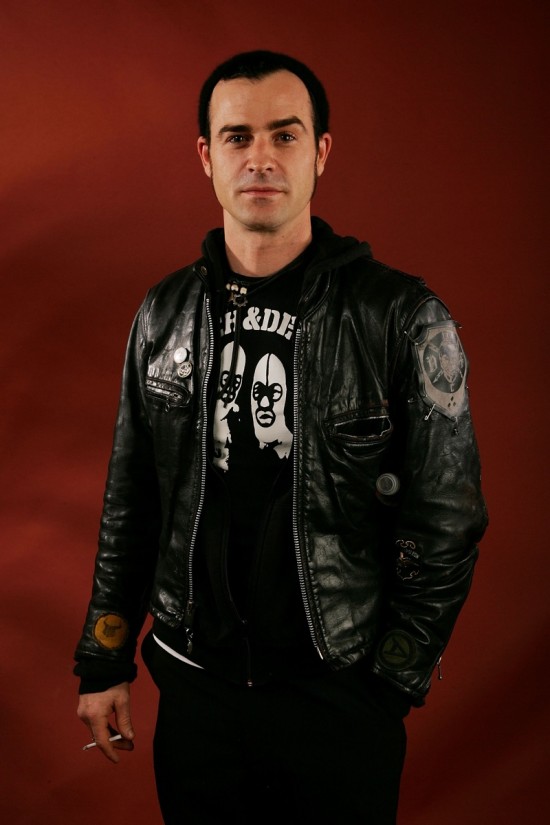
Q: The first movie kind of stuck close to the comic, and even told the origin story that no one wanted but Marvel wanted to tell. And it worked out great – it paid off. The villains in the sequel are kind of a mix – It's not exactly Whiplash from the comic. It's kind of an amalgamation of two different characters. Can you talk about how that happened? Was Marvel very open to you guys straying from the source material?
Justin Theroux: Absolutely, yes. My biggest fear when I was coming in and I sort of overdid my research a little bit before we even started the process of making sure that everything was would work out. Who? What year did this happen? And when did this parents die and all this? And as I went back I would notice that a lot of this doesn't match up. A lot of this isn't it. And Kevin was like, oh yes, because they're comic books. Like people die, come back to life. The other thing– the years change. They're wearing different... One guy has a mustache and now it's gone. Like comic books don't necessarily adhere to their own rules. So, it was actually kind of a relief and I was like, Oh "whew." And he was also very clear about saying don't ever be bound by history. You obviously don't want to do something that's completely bent and backwards but like Justin Hammer [ph?], for example. He's like "It's going to be more interesting to have him be younger because in the comics he's like 70 or something. Has white hair and everything. It's going to be more interesting if we have sort of the cheap zoot version of Tony Stark. So, let's young him up. Let's make him think he's kind of the new Tony Stark on the block. And let's roll him in that way." So, it was very liberating in that sense.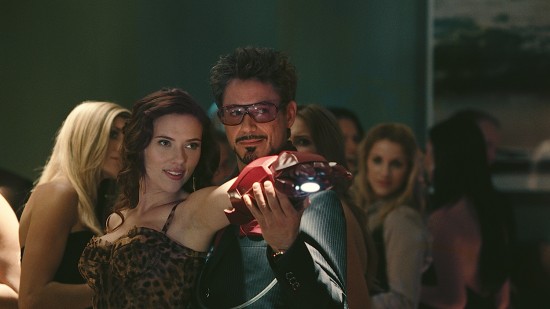
Q: The first film also from some accounts didn't have a script at times or was heavily improved. And you said in the press conference this morning that you were rewriting as they were filming. Can you talk about how it is rewriting on set?
Justin Theroux: I think it's unique to Robert's process. I mean, and Robert is the tent pole that holds this thing up. I've been on other projects where you really, you need to script things into the ground to make sure that the actor has the rails that they want. Robert relishes running things off the rails in a great way, in a way that's just very dynamic. And it's what makes Iron Man so great and what makes most of his performances so great...The thing you want to do is you want to create options for him so that he can go, "I love this, this, this, this and this." He's sort of like a guy who likes to sort of like get a very eclectic set of toys in front of him. And then start playing with them all at the same time. There's so much heat that comes off him. Your job, or my job as a writer is just to just sort of try and divert some of that heat, and hopefully it hits the film. It's particular to that actor, and this movie. You really want to give him as much breadth as possible because what he is going to do that surprises you is going to be the thing that makes it a unique movie. Also, the character itself is not Clark Kent. It's not a guy who's just a fixing his glasses and when something goes wrong he rips his shirt off. He's a guy who is flesh and bone the whole time whether he's in the suit, out of the suit. He's got feelings, highs, lows. You want that character to be as dynamic as possible. So there were times where it was super tiring because you're churning out pages. But it was a process I really enjoyed.
Q: So you're on set everyday?
Justin Theroux: Everyday, yes.
Q: And you're watching them while they're doing it. And if Robert makes a...
Justin Theroux: Robert might go a different direction in the rehearsal. And then he might get excited by another idea. And then another idea, and all of a sudden we're building a prop for that. And then, so then now I'm scripting that prop. And trying to make sure that that's in the script and so we're...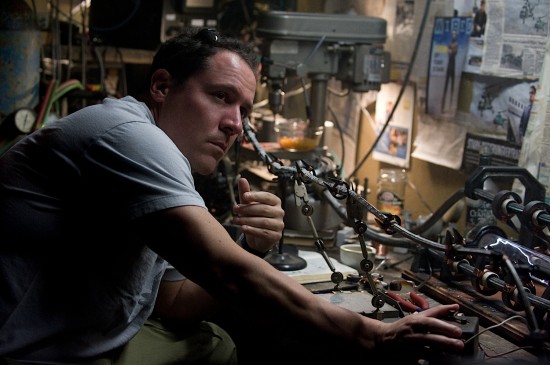
Q: And you're scripting scenes ahead of the– like now he's changed the a plot point of the movie because of...
Justin Theroux: No, well that's what Jon's there for. Jon's there to make sure that he puts these sort of very soft, wide bumpers on the either side of it. And is in charge of the whole ship, and sort of steers it in a way that is hopefully going to be gratifying to the audience.
Q: When I was talking to Kevin he said there was something that Tony went with, something having to do with the Shield Connection that kind of like changed the story it in a totally different direction from the...
Justin Theroux: I mean, everything was probably like that. What do you mean, like the Nick Fury or?
Q: He wasn't specific and I was going to ask you, but it doesn't seem like you remember?
Justin Theroux: No, I mean there was, there was. No, I can think of like four things right off the bat. That there were things that I wouldn't want to probably. It's not too much fun looking behind me and seeing how the sausage is made. But Robert had specific ideas of his father and the way the relationship with his father, and the way that would justify the way that his character is. So, you know, he would say, "I can't do that because in my mind the whole reason I'm this way is because of that." There are things like that which are just sort of personal character elements, which I mean, you can get out of Robert. That he would want. He was specific about things that he would want. We were just trying to facilitate that and make sure that it'd work during the movie.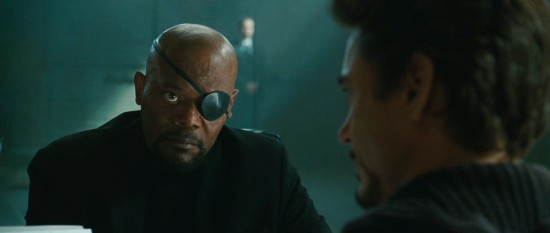
Q: Working in this Marvel Universe, there's obviously Easter Eggs in the film and you're obviously setting up something bigger with The Avengers. How does that work? Does Marvel come and suggest things – we need this, this, and that happen, or?
Justin Theroux: No, they don't. No, it's, I think Kevin is the connective tissue between those movies. So, he's in every single meeting that we're in, and he gives us free reign. "Do what's best for the movie. And we'd like to have this." There's certain things that he would have liked to have been but I don't think we'd embrace. There's certain things that he'd want us to have which are– we could totally do. We're like, "Oh, that's great. We'll do that." And so, I think he's the sort of, the guy that cross-pollinates all the things. He never wants to hinder anyone with like, "Oh by the way you have to do this big Thor thing." It can really take the steam out of a movie, especially if someone who doesn't care about Thor comes to see the movie. And it was. So you don't want to make anything too grand. And you also don't want to bone the next writer or box them in any way. That's what Easter Eggs are. They're sort of like little wrapped things that are wrapped for a reason. And then the next writer is the one who unwraps them, and presents them to the audience.
Q: What's your favorite Easter Egg that I wouldn't notice in the film?
Justin Theroux: I would say, Coulson.
Q: Agent Coulson? Hmmmm... What does that mean?
Justin Theroux: I can't say. It's an Easter egg.
Q: Okay. Well, thank you very much.
Justin Theroux: Alright. Cool, man.
Q: I appreciate it.
Justin Theroux: Thank you.

